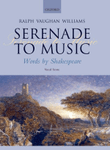Solo voices, chorus, orchestra (Soli TB, Coro STB (SAB), 2 Fl, Ob, 2 Clt, Fg, 2 Cor, 2 Tr, 2 Trb, Timp, Grancassa, Piatti, Tamtam, Arpa, 2 Vl, Va, Vc, Cb) - Grade 2
SKU: CA.2790409
In Fa maggiore. Composed by Pietro Mascagni. Set of Orchestra Parts. Carus Verlag #2790409. Published by Carus Verlag (CA.2790409).
ISBN 9790007354572. 9 x 12 inches.
Looking for some operatic drama for your church choir? Then the "Messa di Gloria" for soloists, choir and orchestra by Pietro Mascagni is just up your alley. Acclaimed throughout the world for his brilliant "Cavalleria rusticana", Mascagni wrote this Mass at the same time as his famous one-act opera.
Composed in a simple but effective style, the Mass features elegant, lyrical melodies sung by tenor and bass, supported by the choir in the more lively movements. The famous "Elevazione", with its poignant violin solo, turns the work into a true masterpiece. With a moderate level of difficulty and requiring modest forces, the "Messa di Gloria" is suitable for both professional and amateur ensembles. This extremely beautiful work is also within the reach of youth choirs and orchestras.
Our edition by Italian conductor Andreas Gies is based on the composer’s autograph score. Featuring – as always with Carus – a critical report and an informative preface, this edition with full score, performance materials and vocal score, presents the work for the first time in modern engraving.
Mascagni wrote his "Messa di Gloria" for a three-part choir in which children (ragazzi) and altos (contralti) sing one vocal line, which is also performed by a (high) tenor and a bass. For today’s mixed choirs, it makes sense to have the high alto voices perform the relatively low soprano part (Ragazzi e Contralti) while the lower alto voices join the tenor line. This makes the work suitable for smaller choirs lacking a strong tenor section. The vocal score and choral score display the middle vocal line both in octavated treble clef (tenor) and in normal treble clef (for the altos) so that everyone can sing from their usual clefs.




















